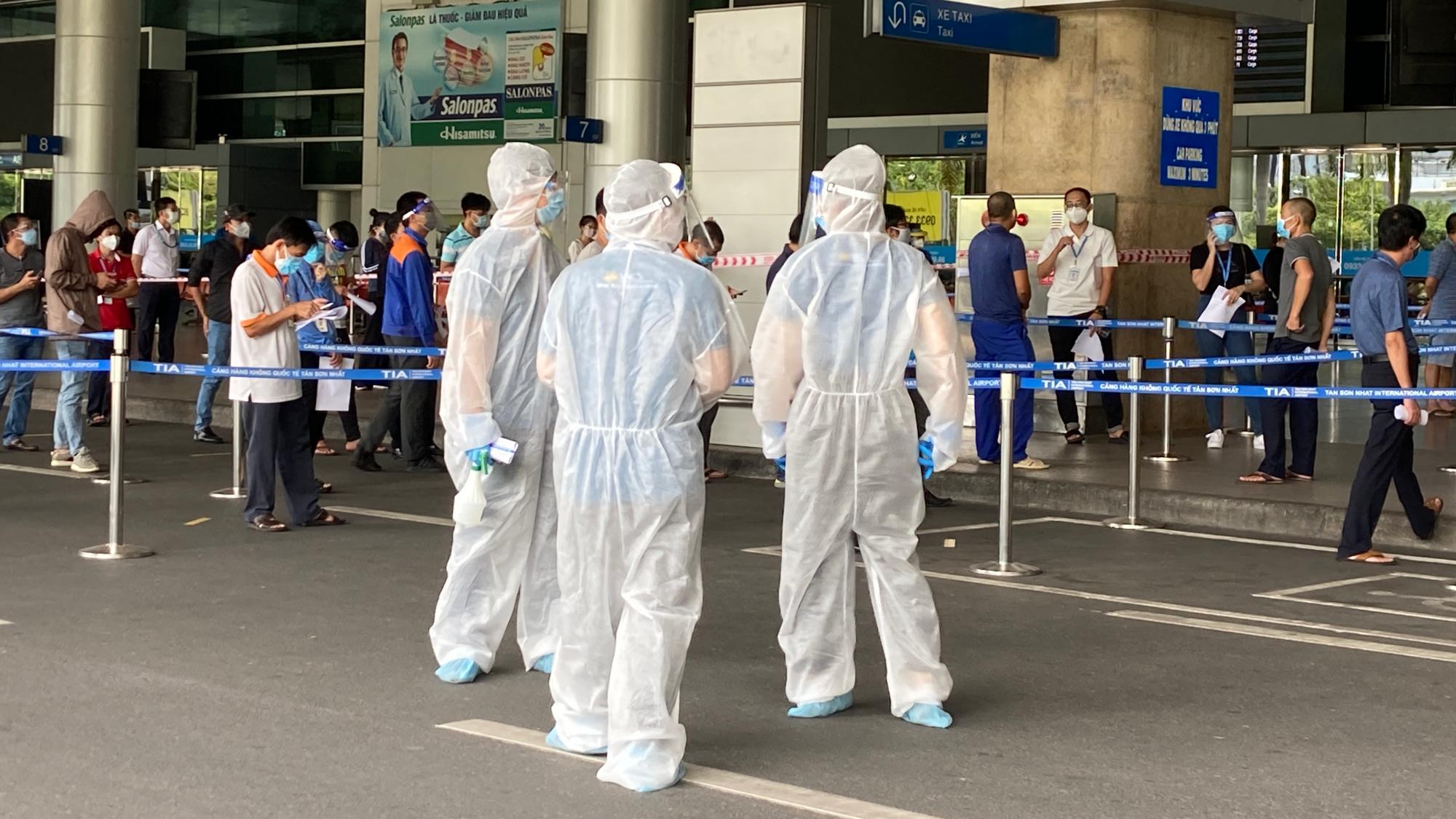When the lockdown in Ho Chi Minh City was partially lifted on October 1, Filipino expat John Chris got ready to book a flight to Hanoi. His passport will be expiring in December, and the only way he can get it renewed is through the Philippine Embassy in the Vietnamese capital.
“I was really excited, and was just waiting for the domestic flights to resume. But when I heard that Hanoi will have all arriving passengers quarantined for 14 days, I felt devastated. I don’t know how else I can renew my passport. I need it for my work permit and residential card,” said John. “Quarantines aren’t just time-consuming, it’s also very expensive.”
Hanoi, which brought the fourth COVID-19 outbreak under control late last month, has been very cautious with reopening its ports to travelers from Ho Chi Minh City, which currently holds the highest number of coronavirus cases and deaths.
Flight passengers from HCMC are subject to 14 days of isolation — 7 days in military-run centralized quarantine facilities or designated hotels and seven days at home. Before flying, passengers will also need to be fully vaccinated for at least two weeks or have recovered from COVID-19 at least six months earlier, and should present a negative COVID test taken within 72 hours.
Hotel quarantines cost at least VND1.5 million a night. For passengers without COVID negative certificate, a rapid antigen test at the airport costs at least VND 230,000. Tests will also be performed twice or thrice within the 14-day quarantine period. All expenses will be shouldered by the traveler.
Aside from Hanoi, the northern port city of Hai Phong, as well as Hue, Danang and Long Dam provinces are also requiring 14-day isolation for flight passengers from domestic coronavirus hotspots.
Hai Phong and Hue, which only allow flights from HCMC, are implementing the same quarantine rules as Hanoi.
For Danang, the city announced that it will uphold preventive measures on flights leaving and entering Da Nang International Airport. Fully vaccinated passengers coming from areas at high risk of transmission will be required to take four COVID-19 tests and self-isolate at home for 14 days. For unvaccinated travelers, a 14-day isolation in designated facilities should be strictly followed.
The city health officials mandated all air carriers to inform passengers of the quarantine rules before they issue tickets, to avoid any problem at landing. Airlines are also told to not sell tickets to customers who failed to fulfill travel requirements from the Ministry of Transport.

These mandated quarantine measures, however, are deterring people from traveling. Like John, thousands of others have decided to postpone their trips, and wait until quarantine-free travel is guaranteed.
The Civil Aviation Authority of Vietnam reiterated on Monday that mandated quarantines should be removed. In a proposal sent to the Ministry of Transport, CAAV requested for major cities, including Hanoi and Hai Phong, to adjust their policies. The aviation authority highlighted the unequal coverage of COVID-19 vaccines, which means millions of people won’t be eligible to fly.
CAAV also suggested passengers from “green zones” should be allowed to fly — vaccinated or not — granting they test negative for COVID 72 hours prior to departure.
Vietnam is currently testing out an 11-day flight resumption plan, which started on October 10, to gauge how the industry can fully restart regular commercial flights. From HCMC, the Ministry of Transport has allowed flights to Binh Dinh, Danang, Hue, Khanh Hoa, Phu Yen, Quang Binh, Quang Nam, Hai Phong, Nghe An, Thanh Hoa, Phu Quoc, Rach Gia and Gia Lai.
On Sunday, when the trial program started, nearly 30 flights were canceled mainly due to quarantine rules.
